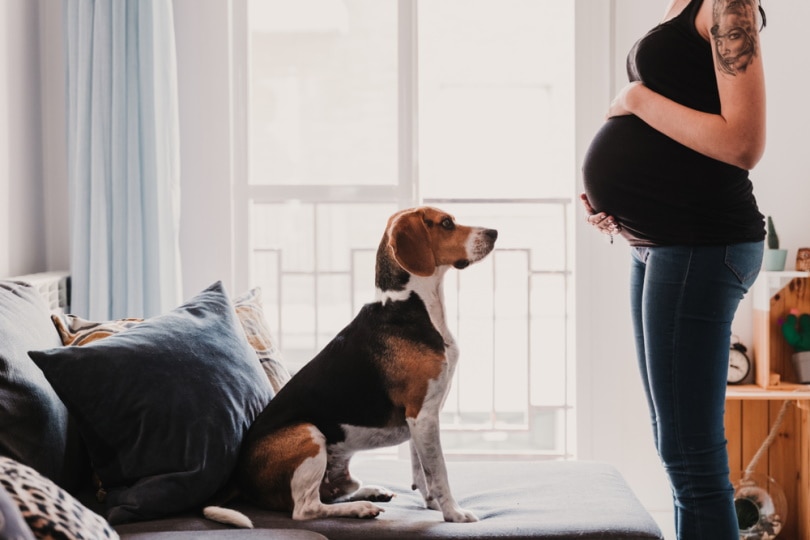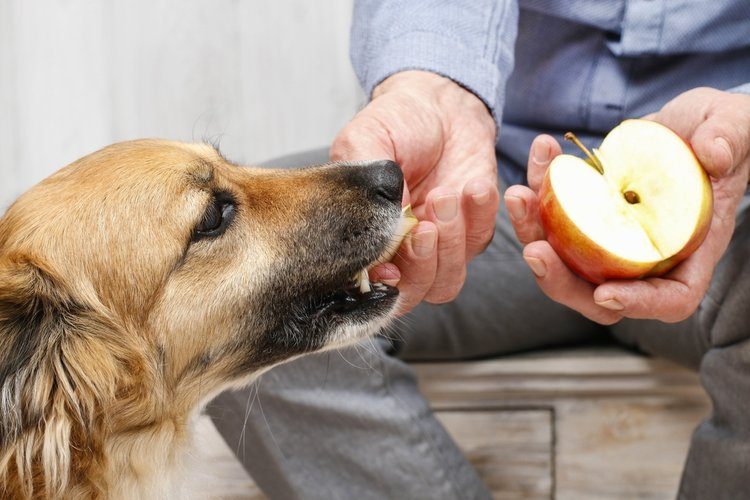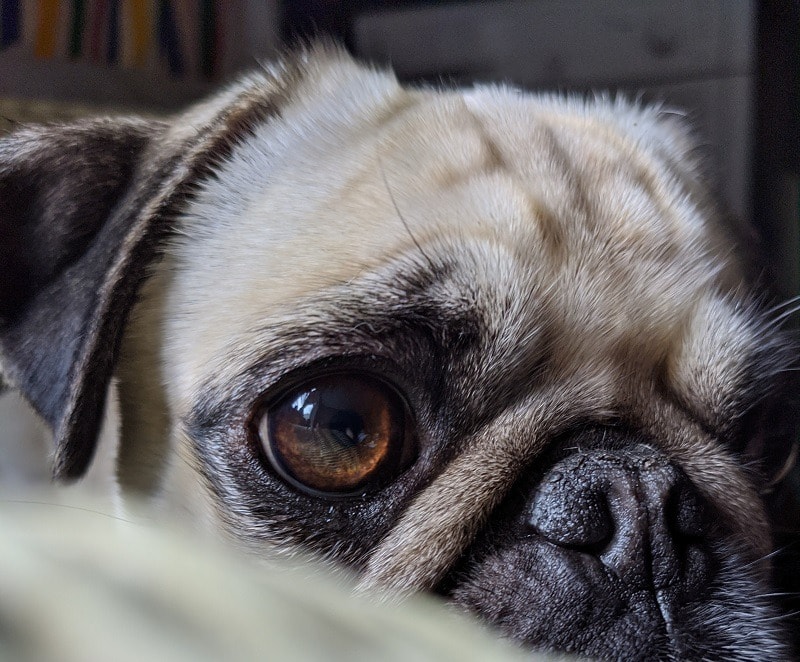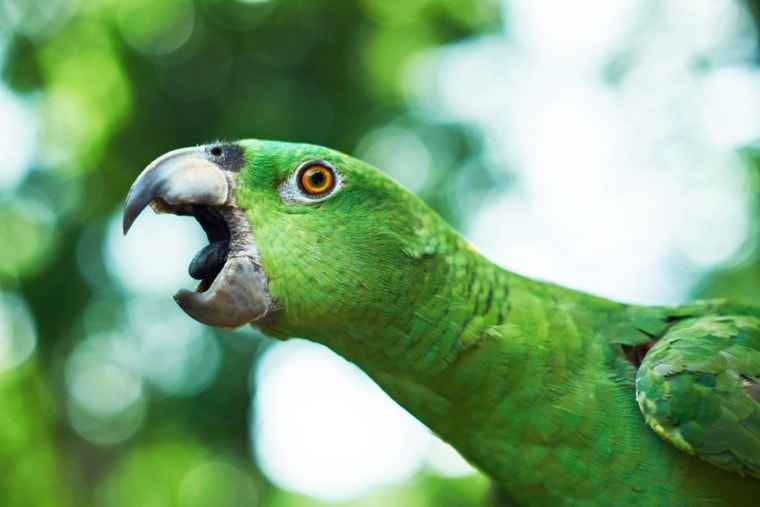
There are more than 350 different types of parrots in the world, including some popular species like parakeets, cockatiels, macaws, and cockatoos. Many of these birds make great pets because they’re smart, beautiful, and highly entertaining to watch. Sometimes, a pet parrot can suffer from diarrhea which is always a matter of concern.
If your pet parrot has diarrhea, we’re here to help! In the following article, we’ll tell you what to do if your parrot has diarrhea and give you more information about the topic so you’ll be better informed.
 Parrot Droppings Can Differ
Parrot Droppings Can Differ
Parrots that eat seeds have normal fecal droppings that are dry, firm, and dark. Parrots that are fed lots of greens may have softer fecal droppings that are green. A parrot with diarrhea has watery droppings which often stain the feathers near the cloaca or vent as it’s also called.

 The 3 Steps to Take to Stop Diarrhea in Your Parrot
The 3 Steps to Take to Stop Diarrhea in Your Parrot
The signs of diarrhea in a parrot are loose, watery, unformed stool. If your parrot has diarrhea, here are the steps to take that will help solve the problem.
1. Carefully Check Your Bird’s Droppings
In a healthy parrot, the droppings should be mostly brown and firm with a small amount of liquid urine. If there is more liquid in your parrot’s droppings but the fecal matter seems solid, your bird could have polyuria that’s often mistaken for diarrhea.
If the droppings your parrot is leaving behind are beige or white and runny, it’s most likely diarrhea. Parrots can get diarrhea for a variety of reasons including:
2. Check for Other Signs
If the diarrhea is caused by a medical problem, it’s often accompanied by more signs. Keep a close eye on your parrot and look for any changes in behavior. It would be helpful to keep track of any symptoms you see by jotting them down. Some signs to watch for include:
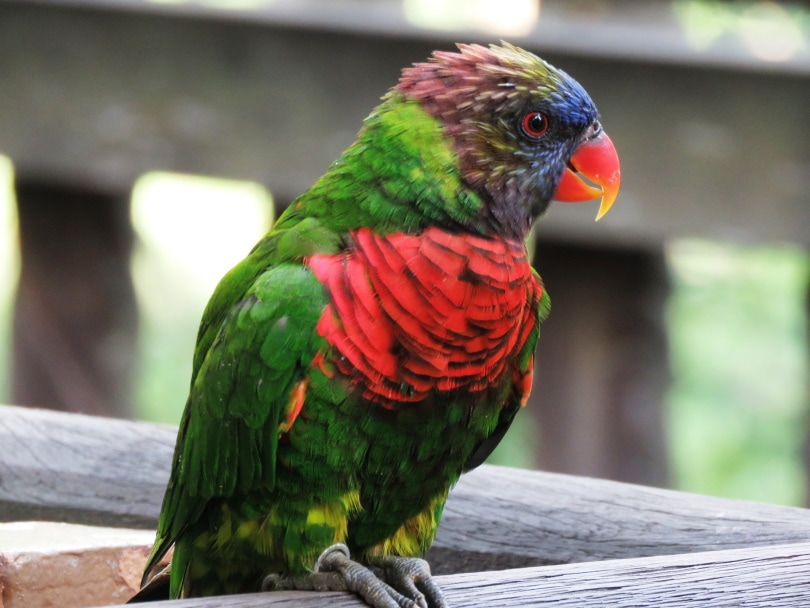
3. Take Your Parrot to the Veterinarian
While it’s not usually problematic for a parrot to have diarrhea now and then, it is a problem if it lasts for more than one full day. It’s also cause for alarm if the diarrhea returns frequently or is accompanied by other signs.
The best thing to do if the diarrhea doesn’t go away within 24 hours is to contact your veterinarian for an appointment. When you speak to the vet, you may be asked several questions including how your bird is acting.
If your vet tells you to bring the bird in, place a new paper birdcage liner in the bottom of the cage so you’ll have a fresh stool sample if needed. When you’re at the vet, provide as much information as possible to help your veterinarian in his diagnosis. For instance, tell your vet when the diarrhea started and how often it has occurred and mention any symptoms you’ve noticed. It’s also important to tell your vet what your bird has been eating and whether it’s been around other birds.
Some Tests Your Vet May Run
It’s possible that your vet will need to conduct some diagnostic tests to determine what’s causing your parrot’s diarrhea. Some tests your vet may run include:
When your vet has determined the cause of your parrot’s diarrhea, you’ll likely be given some treatment options. These options could include antibiotic or antifungal medications, surgery to remove an obstruction, or medications to treat intestinal tract problems. Once you’ve discussed the right treatment for your parrot, be sure to follow all the directions your vet gives you.
 What to Do When When Taking Your Parrot Home
What to Do When When Taking Your Parrot Home
Once you get home with your parrot, don’t give him anything other than pellets to eat along with fresh water. When the diarrhea eases up, you can begin offering your bird his favorite treats like fresh fruits and vegetables in small amounts.
Be sure to keep an eye on your parrot’s droppings. Change the cage liner every day to make it easier to see any changes. You should get in the habit of cleaning your bird’s cage often and switch the cage liners daily. And since birds can experience heat loss that can make them ill, be sure to place the cage in a warm, well-ventilated room to keep your bird healthy and happy.
Final Thoughts
It’s never fun to realize your bird has diarrhea and may be sick. As its owner, it’s your responsibility to provide your bird with the care he needs. It’s never a good idea to ignore parrot diarrhea as it means there is something askew.
Your veterinarian is there to help you care for your bird so don’t hesitate to reach out to your vet for help. The good news is that bird diarrhea is treatable. With any luck, before long your feathered friend should be happily chirping to celebrate his good health!
Also see:
- 27 Parakeet Colors, Types, Varieties & Patterns (With Pictures)
- 14 Types of Pet Macaws: Species & Colors (With Pictures)
Featured Image Credit: PixieMe, Shutterstock

 Parrot Droppings Can Differ
Parrot Droppings Can Differ The 3 Steps to Take to Stop Diarrhea in Your Parrot
The 3 Steps to Take to Stop Diarrhea in Your Parrot What to Do When When Taking Your Parrot Home
What to Do When When Taking Your Parrot Home
